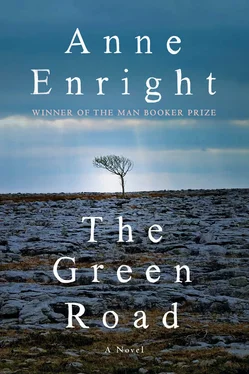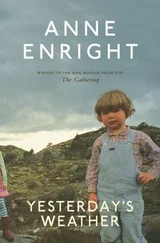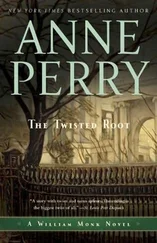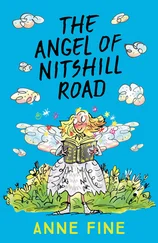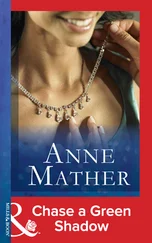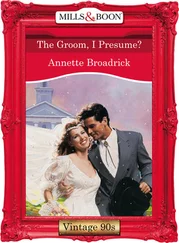O my Dark Rosaleen!
Do not sigh, do not weep!
‘Mammy! How are you?’
Constance was in through the kitchen door now, all girth and bustle. She had a couple of plastic bags she put down on the table. Even her bags were loud.
‘I hope they’re not for me,’ said Rosaleen.
‘Just a few bits,’ said Constance. ‘I was in Ennis.’
‘Was that you on the phone?’ said Rosaleen.
‘Me?’ Constance gave her a sharp look.
‘What time is it anyway?’ said Rosaleen, who could not keep the anger out of her voice, or the upset. Constance did not answer. She picked up the house phone from the table and made it beep, several times, checking something.
‘You got your cards?’ she said.
‘Oh,’ said Rosaleen.
‘They’re not too plain?’
‘Where did you get them?’ said Rosaleen.
‘I kept the Santa ones for our house,’ said Constance who smiled and turned away from her, as though there was someone in the doorway — a child, perhaps — but there was no child there.
‘How’s my pal?’ said Rosaleen.
‘He’s good,’ said Constance. Rosaleen wanted to embrace the child that wasn’t in the doorway. She put her hand out to grip the chair.
‘How’s Rory?’
‘Good, good,’ said Constance, and then, with a deliberate sigh, ‘Actually, Mammy, he’s in his room pretending to study, and he’s on the internet. Twenty-four hours a day. I can’t get him off it.’
‘Oh dear.’
‘If it’s not on the laptop it’s the phone. So I take away the phone and you would not believe it. The temper.’
‘Rory?’ said Rosaleen.
‘He’s nineteen. I can’t be taking away his phone.’
‘And could you not.’ Rosaleen couldn’t think what Constance might do. There was discussion once about his ‘credit’.
‘Could you not take away his credit?’
Constance looked at her.
‘You know, I might,’ she said.
‘Go and give your granny a hug,’ that’s what she used to say. And Rory would walk over, very simply, and put his arms around Rosaleen, and lay the side of his head against her heart.
‘Listen,’ said Constance. ‘I won’t stay. Are you all right?’
‘Of course I am all right.’
‘Put the telly on,’ said Constance, and she had the remote already in her hand. And on the telly came. ‘All right?’
Rosaleen hated the telly. People talked such rubbish.
‘For the news,’ said Constance.
The sound came on to Angelus bells, and now Rosaleen heard them outside too, coming from the church. It was six o’clock.
‘It’s very dark,’ she said.
‘Oh, November,’ said Constance. ‘I’ll see you tomorrow. You’ll come up to Aughavanna tomorrow, for your tea. All right?’
She had opened the door of the kitchen and was already moving through it, and there was the hall beyond her, painted a Georgian turquoise that Rosaleen always considered a mistake. Too acidic. Rosaleen was pulled after her daughter as she turned on the lights, and opened the door to the wine-coloured study, where Rosaleen slept now, because the room was small and easy to heat — an electric radiator, an electric blanket on a timer that only Rory knew how to control, a smoke alarm. And, tucked in under the stairs, a shining, white room with sink and toilet, all tiled and watertight, like the inside of an egg.
The stairs rose up into darkness. Rosaleen did not sleep up there. Not any more.
‘See you tomorrow, Mammy,’ said Constance, and Rosaleen said, ‘You’ll have a cup of tea?’ hating, immediately, the sound of her voice.
‘I won’t,’ said Constance. ‘We’ll have tea enough tomorrow.’
She was speaking loudly, as though Rosaleen were deaf.
‘Why can’t you, sure?’ said Rosaleen.
‘Mammy,’ said Constance with a slight lift of her arms. There it was again, that stupid word.
‘ Mammy ,’ Rosaleen said. ‘Grow up, would you?’
‘I’ll do my best,’ said Constance.
And lose some weight! Rosaleen wanted to say. The woman would be dead before her. But Constance was already on her way down the hall.
It was very ageing — fat. It made her daughter look like an old woman, which was a kind of insult, after all the care that was put into the rearing of her. The coat didn’t help. It was like an anorak, almost.
‘Have a good night,’ said Constance.
‘I will,’ said Rosaleen.
Mind you, the child always liked to sneak things. Down the side of her bed, a little nest of papers. Crinkle crinkle crinkle in the middle of the night.
‘And lose some of that weight!’ she said, after the door closed in her face.
Rosaleen waited a moment, listening to the silence, then gave a little two-fisted victory dance. She heard Constance crossing the gravel outside, the bleat of the unlocking car. Even her footsteps were clear.
She might have heard.
No matter. The woman was her daughter, she could say what she liked.
Rosaleen stood in the hall of acid blue, and listened to the car engine — a purring, expensive sound. She waited for the swirl of gravel, and for the silence after it, then she turned to face back into the house. It was November. The wind was from the south-west, slicing around the landing window, and into the house. Blue Verditer, that was the colour of the hall. Through the far door was the rose-coloured light of the kitchen, and in it, the blare and nonsense of the news.
Wah Wah Wah. The telly was a series of blanks and shouts. The light thrown out by the stupid box, thin and bright. Dim. Bright. Brighter. Gone.
It was all wrong. The wrong-coloured walls. The stairs she never climbed any more, and unimaginable things up there. Unimaginable.
Rosaleen reached for the curling end of the bannisters. The wood was dark, the smell of the polish she used as a child so real she might catch it on a sharp inhale. A volute. That is the name of the curl. It unspooled and swept upwards to the landing and beyond that to the boys’ rooms.
O my Dark Rosaleen ,
Do not sigh, do not weep!
The priests are on the ocean green ,
They march along the deep.
The abandoned bathroom, with its porcelain like ice. The girls’ room. And the big bedroom. Untenably cold.
And Spanish ale shall give you hope ,
My own Rosaleen!
And in those rooms: A print by Modigliani of a naked girl leaning on to her hand. A map on the wall of the whole world, as it used to be. And for the girls; a wall papered with posies tied with ribbons of blue. She pulled herself up the stairs, one two.
Shall glad your heart, shall give you hope ,
Shall give you health, and help, and hope ,
My Dark Rosaleen!
And then she came down again, to stand in the middle of the hall.
The big bedroom was directly above her now, its two windows facing the morning. And in the centre of it — just over her head — the double bed where her father lay dying, and then died. It was the bed where she herself had been conceived, and it was also her marriage bed. Not deflowered. That happened somewhere else. New mattresses of course. The same mahogany headboard, inset with a medallion of rose and cherrywood, the same dark iron frame with strong planks for cross-boards, and in it, all the pomp of her family life: kisses, fevers, broken waters, the damp of their lives, the sap.
The pair of them lying still and awake all night long and Pat Madigan saying to her, some summer morning when dawn came, ‘I don’t know what I am doing here.’ By which he meant lying alongside her, John Considine’s daughter, a woman he had loved with quietness and attention for many years. Also patience, of course. And tenacity. He did not know what he was doing in this place — what he had been doing — if he had not wasted his life on her. He might have been with a different woman. A better woman. He might have been more himself.
Читать дальше
